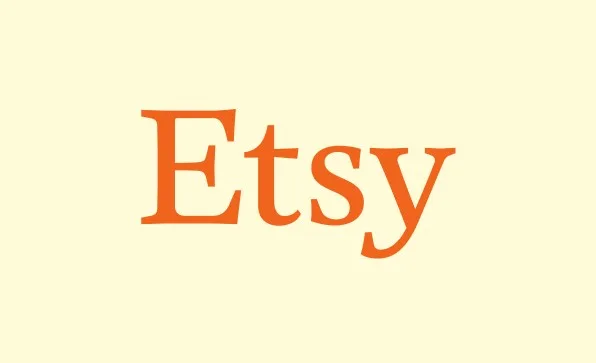
The Success Story of Etsy: How a Handmade Online Marketplace Went Global
The Success Story of Etsy: How a Handmade Online Marketplace Went Global
From Humble Beginnings to a Flourishing Global Platform
Etsy was founded in 2005 by Rob Kalin, Chris Maguire, and Haim Schoppik with a singular vision: to create a platform where artisans and crafters could showcase and sell their unique creations. The company initially operated out of a small apartment in Brooklyn, New York. While the idea of an online marketplace was not revolutionary, Etsy’s niche focus on handmade and vintage items set it apart in a crowded e-commerce space.
Unlike many other marketplaces of the time, Etsy prioritised individuality and creativity. Sellers were encouraged to offer unique, handcrafted items that couldn’t be found elsewhere. This approach resonated with consumers tired of mass-produced goods and eager to support small businesses. Within a few years, Etsy became synonymous with creativity and craftsmanship.
The initial years were challenging, with competition from established platforms like eBay and Amazon. However, Etsy’s founders capitalised on a growing global demand for artisanal and personalised products. By offering a user-friendly interface, fair pricing for sellers, and a community-driven approach, Etsy carved out a loyal customer base.
Early Growth: A Community-Centric Model
Etsy’s early growth can be attributed to its focus on fostering a sense of community among buyers and sellers. The platform introduced forums, workshops, and meetups, helping creators connect and share insights. This community-driven model made Etsy more than just a marketplace; it became a network of artisans and small businesses supporting one another. By 2010, Etsy had over 7 million users and was handling sales worth hundreds of millions of dollars annually.
One defining aspect of Etsy’s early success was its ability to empower sellers. For many artisans, Etsy provided a global stage that had previously been out of reach. Sellers could now bypass traditional retail channels and reach customers directly. The platform’s transparency regarding fees and policies further enhanced its appeal among small business owners.
Moreover, Etsy’s investment in seller education—offering tips on branding, marketing, and customer service—ensured that its users were well-equipped to succeed. This holistic support system set Etsy apart as not just a marketplace, but a partner in its sellers’ growth journeys.
The Game-Changer: Strategic Innovations
As Etsy grew, the company continuously innovated to stay relevant in a rapidly evolving digital landscape. One of the most notable steps was the introduction of Etsy Payments in 2015, which simplified transactions by allowing users to pay directly through the platform using various methods, including credit cards and PayPal. Additionally, Etsy introduced robust SEO tools, enabling sellers to optimise their listings and reach a broader audience.
Another significant innovation was the use of machine learning to personalise the shopping experience. By analysing user data, Etsy began recommending products tailored to individual preferences. This strategy increased user engagement and boosted sales for sellers. Moreover, Etsy launched an advertising service, allowing sellers to promote their products on and off the platform.
One key factor in Etsy’s growth was its mobile strategy. Recognising the shift in consumer behaviour towards mobile shopping, Etsy invested heavily in developing user-friendly apps for both buyers and sellers. This decision paid off, as mobile traffic quickly became a dominant source of sales.
The Sustainability Edge
In 2019, Etsy committed to becoming a carbon-neutral company, setting it apart from other e-commerce giants. By offsetting emissions from shipping and focusing on sustainable practices, Etsy appealed to environmentally conscious consumers. This sustainability edge not only aligned with the values of many sellers but also attracted a new wave of buyers who prioritise eco-friendly shopping.
Beyond environmental impact, Etsy also focused on social sustainability. The platform has made significant efforts to support underrepresented groups, including women and minority-owned businesses. These initiatives resonate with Etsy’s core audience, further solidifying the platform’s reputation as an ethical marketplace.

Today and Beyond: Etsy’s Legacy
In 2024, Etsy stands as a global powerhouse with over 90 million active buyers and millions of sellers from around the world. The company’s commitment to empowering small businesses remains its cornerstone, providing creators with the tools and resources to thrive in a competitive market. Etsy’s international expansion, coupled with its embrace of diverse cultures and traditions, has further solidified its status as a global leader.
As Etsy looks to the future, the company aims to enhance its platform through continuous technological advancements and strategic partnerships. Whether it’s through augmented reality features for better product visualisation or initiatives to further reduce its carbon footprint, Etsy’s journey is a testament to the power of vision, innovation, and community.
The company has also shown a willingness to adapt to changing consumer trends. As the popularity of subscription services and personalised shopping experiences grows, Etsy continues to evolve, ensuring it remains a leader in the e-commerce space for years to come.
Lessons from Etsy’s Journey
The story of Etsy offers invaluable lessons for aspiring entrepreneurs. The importance of carving out a niche, staying true to core values, and continuously adapting to market demands cannot be overstated. Etsy’s success underscores the potential of a business model that prioritises community, sustainability, and user experience.
Ultimately, Etsy’s rise is a reminder of the power of creativity and the enduring appeal of craftsmanship in an increasingly digital world. It’s a success story that inspires not just artisans, but anyone looking to make their mark in the competitive world of business.
